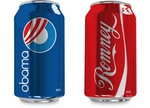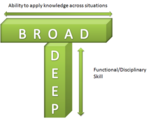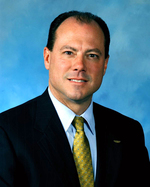This article is written by Aquent's Mollie Nothnagel who helps brands and agencies find the talent they need to get the job done.
Networking during the holidays is the perfect time for advertising and marketing job seekers to put their creative minds to use. Whether it's a networking event, an informal meet-up or a holiday party, job seekers are presented with many opportunities to expand their network.
more »
At Central Desktop's Collabosphere 2012, the topic of democratizing the creative process was discussed. The heart of the conversation centered on whether or not (and how much of) the creative process should or should not be extended outside the department.
While there was general consensus for agency-wide collaboration at the outset of the creative process (ie. a good idea can come from anywhere), in the end, one entity (the creative department) has to turn a good idea into a workable idea
more »
This guest article was written by Jim Signorelli, CEO of ESW Partners, a marketing communications agency based in Chicago specializing in branding.
From the early beginnings of the race for the White House, the news media seemed deeply concerned about who would have the biggest war chest. Certainly, dollars have historically contributed a great deal to winning Presidential campaigns. But given that Obama scored a 62% Electoral College advantage with only 4% more spending than Romney, the power of money has been seriously called into question.
Money buys audience reach, message frequency and media placement. Money also pays for the creation and production of messages as well as the necessary wherewithal to administer those messages. We cannot discount the importance of these financial realities.
more »
T-shaped talent is a term used to define a person's skill set. If a person has T-shaped talent, they are well-versed in a particular area of expertise (represented by the vertical bar in the T) along with possessing the ability to collaborate with experts across disciplines other than their own and apply that knowledge (represented by the horizontal bar in the T).
One can argue T-shaped talent is the perfect skill set A person who is an expert in one field can be counted on to flawlessly complete tasks in his or her area of expertise. Additionally, they know just enough about other fields to work intelligently and productively with experts in other specialized fields. This saves a company time and money because less time need be spent explaining things and more time will be spent accomplishing things.
Continue Reading...
As is always the case, the irrefutable CMO math has bitten yet another ad agency in the ass. This time it's Honda biting RPA. True to form, new Honda CMO, Michael Accavitti, after taking the job last year, said, dumping RPA would be "completely unproductive and unnecessary, RPA is an extension of the Honda family," flip flopped and uttered this mouthful:
"In the face of a changing media landscape and a hyper-competitive marketplace, our challenge is to create dynamic marketing campaigns that connect and engage consumers with our products and our brands. The review we have initiated will lead to a strong, long-term strategic plan for our brands"
more »
If you've watched Mad Men or worked in the advertising industry prior to, say, 1993, you are probably familiar with the concept of the ad campaign. Actually, if you've worked in advertising since 1993, you're familiar with the term, too - although in a different context. Why? In 1993, the Mosaic web browser was launched and it, forever, changed the concept of the advertising campaign.
Prior to 1993, developing an ad campaign boiled down to the most simplistic basics: determining who to reach, how to reach them and for how long. It was a set it and forget it mentality. After 1993, the web and social media shifted the concept of the advertising campaign from "set it and forget it" to "always on."
Read the rest on the Central Desktop blog.
Back in September we shared a story about health provider Health Net which used fake tweets to promote its services. We called the work "a juvenile marketing move and yet another example of testimonials gone wrong."
Now, the brand is doing a bit of back peddling presenting us with what they claim to be the real people behind the Twitter accounts they used in the campaign. The move is laughable as the accounts - NonStopMom2, HealthNut_2 and Biz_Guy1 - have just one or two tweets, all of which read "Thank you for your interest, learn more here" with a link that points to three "testimonials" from the "owners" of these Twitter accounts.
more »
Over the years, the integration versus unbundling debate has raged on within the advertising industry. One side would argue it's best to have all necessary expertise under one roof. Others would argue it's best to create or partner with entities that offer specialized focus. The integration camp would claim their approach provides for better collaboration. The unbundling camp would argue their approach provides better expertise and greater efficiencies. They are both right. And they are both wrong.
Both specialization and integration have their benefits. But what's most important is working together in the best possible way to garner the best possible results for clients. If that's integration, great. If that's unbundling, great. We're not here to debate the finer points of either camp. We're here to offer up some real-world insight into how real-world agencies are tackling real-world problems.
Read the rest on the Central Desktop blog...
This guest article is written by Jim Signorelli is CEO of StoryLab Marketing.
Why do we call them "creative" briefs?
The traditional advertising creative brief, has a history dating back when it was first used in 1863.
That same year, President Lincoln was asked to speak at the dedication of the new Solidiers National Cemetery in Gettysburg, Pennsylvania. An unprecedented human tragedy and the product of a war Mr. Lincoln was having to justify would serve as the backdrop for this speech.
To prepare Mr. Lincoln for this challenge, a staffer developed an outline of what needed to be said. This first-of-its-kind outline was so named "the creative brief" because it provided "a focused structure that the President could use for inspiration." Here's how it read:
more »
This guest post is written by Jesse Robson, a freelance writer currently working for Liberty Marketing. When he's not at work Jesse spends most of his free time writing, following pop culture and playing with his golden doodle Max.
Commercials have certainly evolved from the time of your parents and even your parents' parents. If you get TV Land on cable tv, you might have even caught some of the older, retro commercials interspersed between episodes of The Andy Griffith Show and I Dream of Genie.
Yes, things were certainly different back then and all you really needed was a cute mascot, an infectious jingle and an authoritative voice to move product. However, commercials and, really, marketing as a whole have evolved.
more »

|











